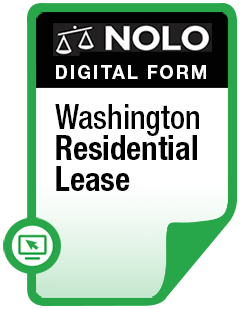Driven by rising cost of living in recent years, new regulations on residential rentals have been cropping up in various parts of the nation. Cities, and even some states, are enacting or discussing the creation of new regulations such as rent control aimed at limiting rents and rent growth in efforts to keep housing more affordable for people of limited means. New laws on allowable fees, initiation of an eviction process, and handling of deposits are also common.
The West coast and the Northeast are where most of the rent control and new regulation action is. Following are some highlights – not an exhaustive list – of these new rental rules. For context we have included some history on existing laws:
Oregon:
- The first to pass state-wide legislation, fixing rent increases annually to 7% plus the rate of inflation.
- Upon tenant turnover (as long as the resident moved out willingly) owners may ask for market rental rates.
- Newly constructed buildings would be exempt from the regulation for 15 years.
- New “just cause” eviction laws, giving landlords a limited list of reasons they can force people to move out.
Washington:
- Since 1984 rent control laws have been illegal in the state of Washington, however that law is now facing significant challenges.
- As of July 2019 required notice for rent increases has been raised from 30 to 60 days.
- More time and documentation is required when initiating an economic eviction. A fourteen-day ‘pay or vacate’ notice is now a required instead of three.
- All payments must be applied as rent instead of late or other fees.
- Notice of demolition, rehab, or owner occupancy of a building has been extended to 120 days.
- Note: Since 1984 rent control has been in the state of Washington, however that law is now facing challenges.
To help ensure that you’re operating in accordance with new regulations make sure to use a lease form that’s tailored to Washington State. Nolo Press provides an online tool that will guide you through the process of creating a lease that protects you and your property.
Seattle:
- The city has far more restrictive rules and laws than the rest of Washington, as well as most of the country.
- Regulations passed in recent years keep landlords from considering criminal history and source of income as a part of their selection process. Several limitations have been placed on the amount that can be collected at move-in, and landlords are required to take deposits and non-refundable fees in installments.
- The city council has passed several laws in 2019, including limitations on a landlord’s ability to restrict tenant’s ability to move-in a new roommate or have family members co-occupy. Victims of domestic violence also cannot be held responsible for damages associated with that abuse.
- A city council proposal that will likely be taken up in December 2019 would limit annual rent increases to the rate of inflation – generally 2 -3%. Most long term housing stock would be impacted. This cap would also apply at turnover, keeping landlords from bringing units up to market rent rates when a tenant leaves – only one increase per year would be allowed. Owners redeveloping their properties would be required to replace any “affordable” units they bring upmarket through improvements.
- Note: As mentioned above, rent control is illegal in Washington state. Supporters of these new measures advocate passage in Seattle, with implementation deferred pending changes to state laws.
Mentioned above, the Nolo online lease creation tool for Washington State also allows for customization to suit Seattle-specific laws.
New York City:
- Has had rent regulations since the end of WWII, with units being restricted based on ‘rent control’ or ‘rent stabilization’ laws. As in California, complicated rules dictate which units are covered under rent control laws.
- New laws make some regulations permanent, restrict the ability to remove units from rent regulated status, limit increases in rent, and in many cases keep landlords from coming up to market rents on turnover. Increases in rent are now held to 2% based on improvements to properties. Rules allowing increases to market rental rates in the event tenants income rises to $200,000/year have also been abolished.
In New York (city and state) you can benefit from having a strong lease document. Nolo Press does not yet have a NY-specific lease, however their Residential Lease form allows you to create strong documents quickly online, and the accompanying Nolo’s Guide to Your Lease or Rental Agreement will help you navigate local laws. Rocket Lawyer also provides lease templates. We’d recommend comparing them!
New York State:
- New laws enacted in 2019 allow cities and towns to enact rent regulations, effectively extending the possibility of NYC rules to the rest of the state.
- New York leads the nation’s move towards state-wide rent control along with Oregon.
California:
- A new rent control act passed the state legislature
- As of January 1st2020 the maximum rent increase is now capped at 5% plus the rate of local inflation.
- “Just Cause” eviction rules now apply state-wide.
California law can be difficult and confusing to keep up with. Nolo’s California Landlord Bundle provides the information and forms crucial to the success of your landlording business in two easy-to-read volumes.
California Cities:
- Los Angeles and surrounding cities have long had regulations on rental rates.
- Enacted in December 2018 and renewed through the end 2019, the City of Los Angeles has passed a temporary Rent Stabilization Ordinance (RSO) making the maximum 12 month rent increase 4% and enacts “just cause” eviction rules.
- Along with Los Angeles and Santa Monica, San Francisco rent control regulations date back to the 1970’s, leaving a legacy of complicated rules on which units are covered. Rent increases are regulated by these cities, most often tied to the inflation rate.
Washington DC
- Buildings constructed before January 1st, 1976 fall under rent control regulations.
- Annual increases are limited based on the lower of the Social Security Cost of Living (2.8% for 2019) or the Consumer Price Index – Urban Workers (2.3% for 2019). Tenants over 62 or with disabilities can apply to have their rent set to these rates, whereas other tenants could have their rates increased by these indices plus 2%.
Maryland and New Jersey Cities
- Neither state has regulations on maximum rent or increases allowed.
- Several cities in each state have existing laws, most dating back decades, however there have not been new rules enacted in recent years.
Using this as a starting point, we strongly recommend thorough research of your local laws. Having strong lease agreements that are specifically tailored to your locality, for example, can help you mitigate the effects of these regulations and help you stay out of trouble. Carefully crafting and following smart processes – such as keeping up with allowable increases in rent – can also help you maximize the profitability of your property. We’ll talk more about that soon!

Make A Lease Agreement. Start Now.
Disclosure: Some of the links in this post are affiliate links and Landlord Gurus may earn a commission. Our mission remains to provide valuable resources and information that helps landlords manage their rental properties efficiently and profitably. We link to these companies and their products because of their quality, not because of the commission.




